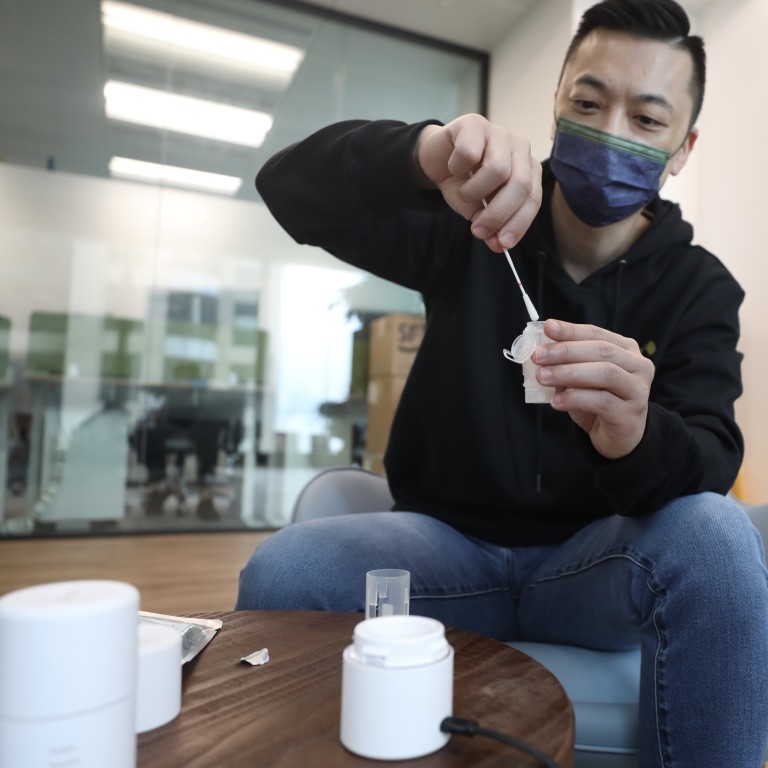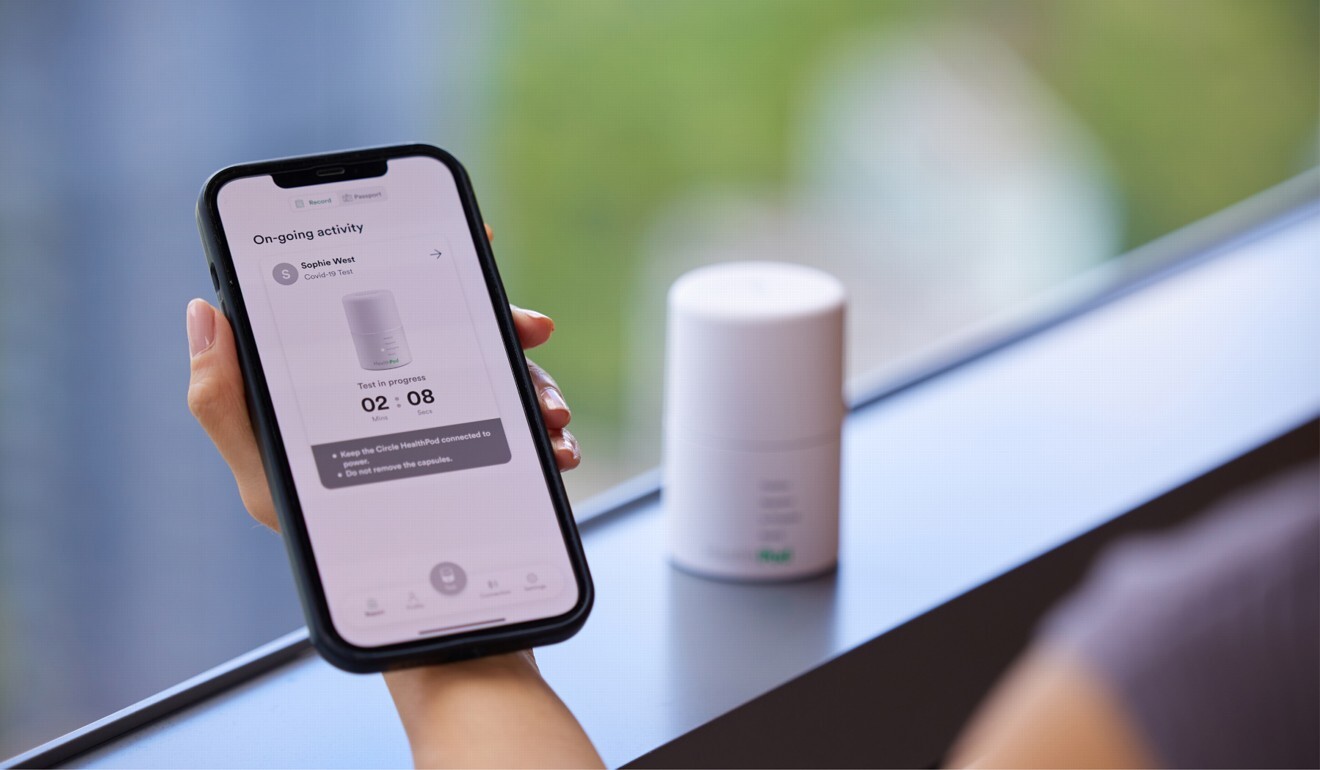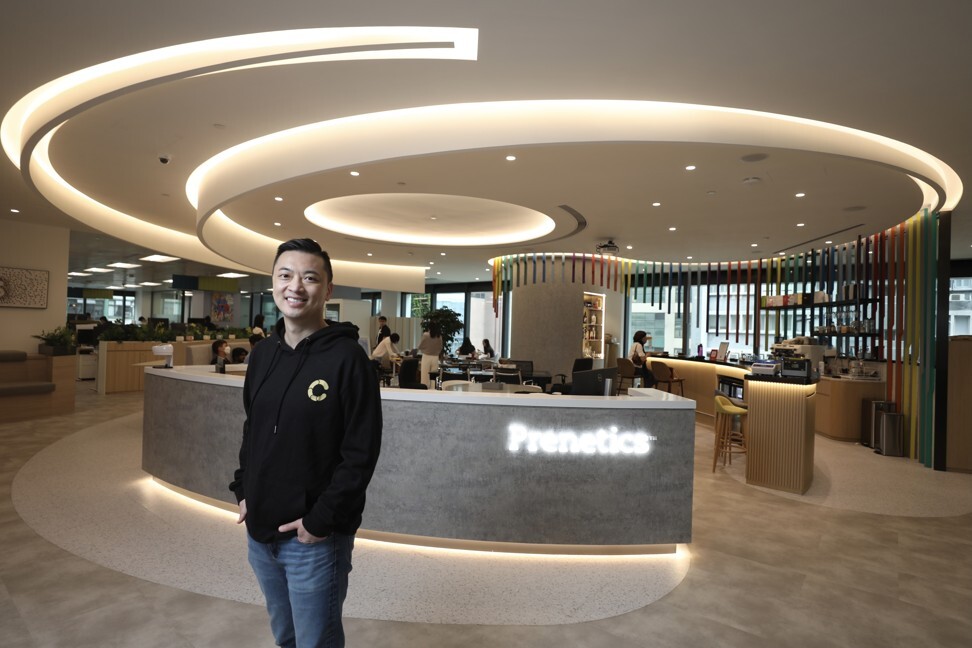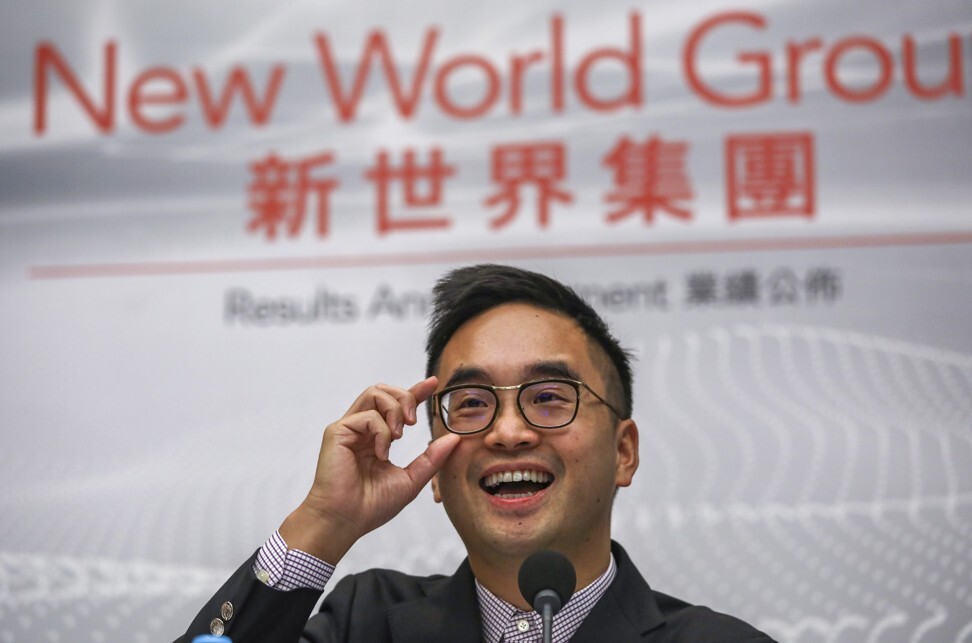
Hong Kong’s Prenetics aims to make Covid-19 testing quick and easy at home through Circle HealthPod’s reusable system
- Circle HealthPod can be used to detect infectious diseases, starting with Covid-19
- The technology has been developed at Oxford University and has a sensitivity of 96 per cent and specificity of 99.9 per cent when it comes to Covid-19 detection
The device will let households manage their health with fast, accurate and lab-quality testing when and where it is needed, said Danny Yeung, the company’s CEO. The HealthPod will work with single-use molecular capsules for all infectious diseases, starting with Covid-19.
“For now, we have launched a capsule for Covid-19. By summer next year, when you go to Watsons shops, you will be able to buy [HealthPod] capsules for the detection of influenza and STDs [sexually transmitted diseases],” Yeung said.

Yeung declined to comment on the SPAC merger, but said Cheng had become an investor last year. “I discussed it with him late last year. He is now our investor and we are part of Adrian’s health care ecosystem,” he said.
The technology behind the HealthPod has been developed at Oxford University and has a sensitivity of 96 per cent and specificity of 99.9 per cent when it comes to the detection of Covid-19, Yeung said. Prenetics has signed a three-year contract with Oxford for the development of this technology.
“Molecular tests are nucleic acid amplification tests, which are the reference standard for the detection of Covid-19. This means they are the most accurate type of tests to detect [Covid-19 in] both symptomatic and asymptomatic individuals, when compared with other methods such as antigen tests,” Yeung said.

Prenetics is collaborating with New World Development, which is controlled by Cheng’s family, and Watsons for the launch of HealthPod in Hong Kong. Yeung said the company had already received 60,000 pre-orders from the city and Southeast Asian countries, and that it was expecting to sell 200,000 units by the end of this year.
Yeung is hoping to get an approval from the US government for the launch of the HealthPod by the end of this year. This will bring it head to head with American company Cue Health, which has launched its own device that uses a test cartridge and nasal swab to test for Covid-19.
Cue Health’s device delivers its results to an iPhone or iPad in 19 minutes, one minute faster than Prenetics’ HealthPod. Its device is being used by the US government for Covid-19 testing. Yeung said the Prenetics device costs half as much as Cue Health’s.

The company, which was formerly known as Multigene Diagnostics, was founded as a spin-off from the biomedical sciences department of City University of Hong Kong and incorporated in Hong Kong in 2007.
In 2014, Yeung joined as an investor and CEO and revamped the focus and business strategy. The company was renamed Prenetics, which takes its roots from the words “prevention” and “genetics”.

